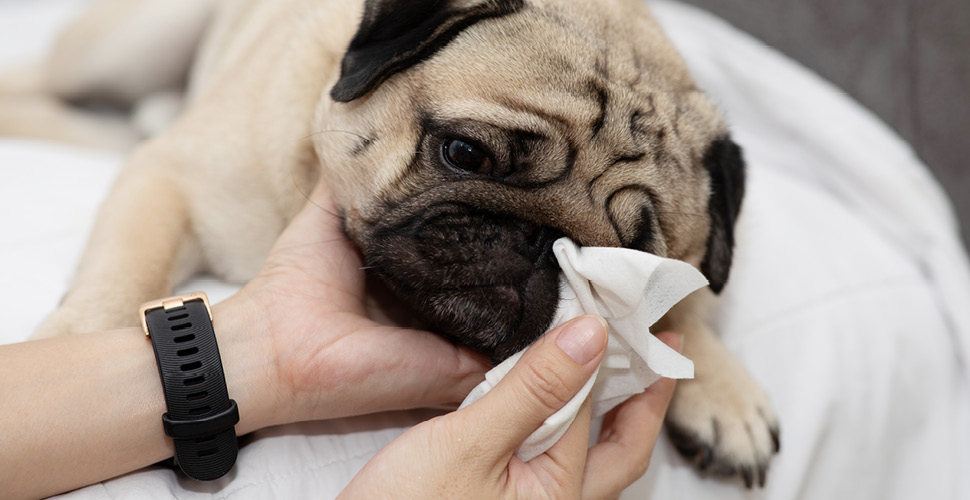As fall approaches, the beauty of changing leaves and cooler temperatures also brings with it the challenge of seasonal allergies, not just for humans but also for our furry friends. While these allergies in pets can often go unnoticed, they can be just as uncomfortable for them as they are for us. In this blog post, we’ll explore the signs that your pet may be suffering from seasonal allergies, as well as offer solutions for symptom management and when it’s time to consult a veterinarian.
Signs Your Pet Has Seasonal Allergies
Itchy Skin
- One of the most noticeable signs of allergies in pets is itchy skin. You may notice your pet scratching or biting at their skin more frequently. This can lead to hot spots or even infections if not addressed.
Watery Eyes or Runny Nose
- Just like humans, pets can experience watery eyes or a runny nose when suffering from allergies. Keep an eye out for these symptoms and clean the areas gently to avoid additional irritation.
Sneezing and Coughing
- Respiratory symptoms such as sneezing and coughing can also be signs that your pet is dealing with allergies. While occasional sneezing might not be a cause for concern, frequent bouts are worth noting.
Ear Infections
- Allergies can cause ear infections in pets, characterized by red, inflamed ears and frequent scratching or shaking of the head. This is a condition that requires prompt medical attention to avoid complications.
Managing Symptoms at Home
Frequent Baths
- Giving your pet frequent baths can help relieve itchy skin. Use hypoallergenic or oatmeal-based shampoos designed for pets with sensitive skin.
Air Purifiers
- Consider investing in an air purifier to remove allergens from the indoor environment. This can help both you and your pet breathe easier.
Anti-Allergy Pet Foods
- Some specialized pet foods are formulated to boost your pet’s skin and coat health. Discuss these options with your veterinarian to see if they would be suitable for your pet.
Wiping Down Paws
- After walks or outdoor activities, wipe down your pet’s paws with a damp cloth to remove any allergens they may have picked up. This simple act can prevent these allergens from spreading to other parts of their body or your home.
When to Consult a Veterinarian
Persistent Symptoms
- If you’ve tried various home remedies and still notice persistent symptoms, it may be time to consult a veterinarian for a more in-depth diagnosis and treatment plan.
Allergy Testing
- Veterinarians can conduct specialized tests to determine the specific allergens affecting your pet. This can help tailor more effective treatment options.
Prescription Medication
- In severe cases, prescription medication such as antihistamines or corticosteroids may be required. Always consult your veterinarian for the most appropriate treatment for your pet.
Seasonal allergies in pets are often overlooked but can significantly impact their quality of life. Being aware of the signs and knowing how to manage symptoms at home can go a long way in making your pet more comfortable. However, for persistent or severe symptoms, professional care from a veterinarian is strongly advised.


